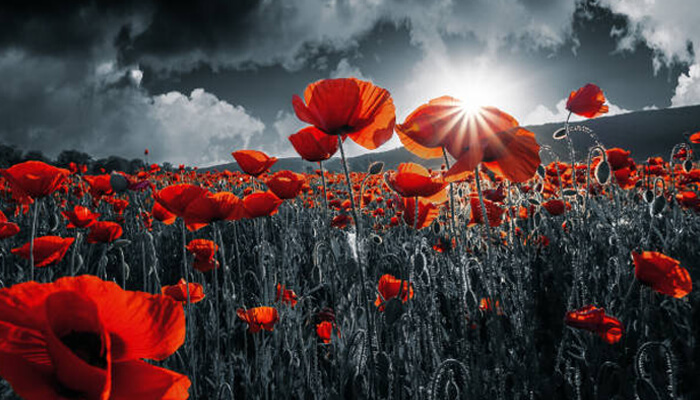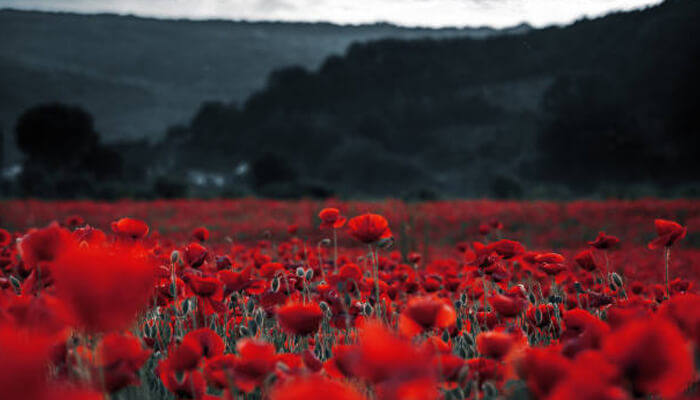Abdul strikes the heads of poppies as hard as he can while holding an AK-47 assault rifle on his left shoulder and a long stick in his right hand. The stalks and sap from the poppy bulb both flutter in the air, emitting the characteristic, strong aroma of opium in its unprocessed state.
Abdul and a dozen other guys quickly destroyed the poppy crop that had overtaken the little field. The armed men then board a pickup truck and proceed to the following farm while donning shalwar kameez (a traditional Afghan tunic with loose-fitting trousers), the majority of whom have long beards.
We were given a rare opportunity to accompany the guys on one of their patrols to destroy poppy farming. The men are members of a Taliban anti-narcotics unit in the eastern Nangarhar region of Afghanistan. The men were insurgency combatants who were engaged in a conflict to grab control of the nation less than two years ago. Now that they have prevailed, they are dominating and carrying out their leader’s commands.
Haibatullah Akhundzada, the supreme leader of the Taliban, issued a directive in April 2022 outlawing the growing of the poppy, which is used to make opium, a crucial component of the narcotic heroin. Anyone breaking the law would have their pitch destroyed and face Sharia-compliant penalties.
A Taliban spokesman told the BBC that the prohibition was put in place because it violates their religious convictions and is necessary to prevent the spread of opium, which is obtained from poppy seed capsules. More than 80% of the opium in the world used to be produced in Afghanistan. In Europe, opium from Afghanistan accounts for 95% of the heroin sold.
The BBC has now been to Afghanistan and utilized satellite analysis to investigate the impact of direct intervention on the cultivation of opium poppies. The Taliban leaders seem to have had more success than anyone else in eradicating farming.
We discovered a sharp decline in poppy growth in the main opium-producing areas; according to one expert, annual cultivation maybe 80% lower than the previous year. Poppies have been replaced with less lucrative wheat crops, and many farmers report experiencing financial hardship.
In order to view the situation firsthand, we traveled to the provinces of Nangarhar, Kandahar, and Helmand. We rode on muddy, winding roads and walked miles across agriculture and rocky terrain.
The 2022 opium harvest, which climbed by a third over 2021, was exempt from the Taliban directive, according to the United Nations Office on Drugs and Crime (UNODC).
But this year is a lot different. The data we observed on the ground is supported by aerial photography.
David Mansfield, a recognized authority on the drug trade in Afghanistan, collaborates with Alcis, a UK company that specialized in satellite analysis.
“Cultivation is probably going to be less than 20% of what it was in 2022. According to him, the scale of the reduction will be unparalleled.
Despite the fact that most farmers have cooperated with the restriction, Taliban insurgents have been damaging their crops.
Bottom Line
The US invested billions of dollars in Afghanistan to combat opium production and trafficking in the hopes of reducing the Taliban’s income.
They conducted raids on drug manufacturing facilities, burned opium supplies, and carried out airstrikes on opium fields in Taliban-controlled areas.
However, the BBC observed opium growing openly in regions under the administration of the US-backed former Afghan regime prior to the Taliban takeover in 2021.
For the time being, the Taliban seem to have succeeded in Afghanistan where the West failed. However, it is uncertain how long they can maintain it.
According to Mike Trace, a sharp decline in opium cultivation in Afghanistan is likely to have a significant positive impact on heroin addiction in the UK and the rest of Europe.



